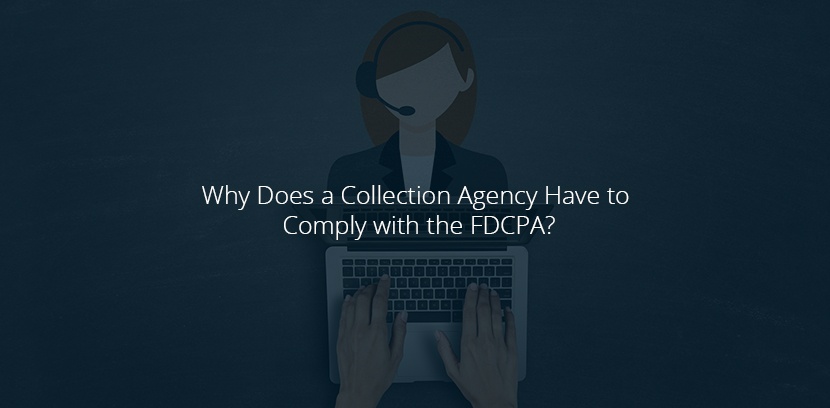Dealing with overdue accounts can be frustrating to any business owner, landlord or accounting professional. In some cases, by the time the account reaches a third party debt collection partner, the attempts at collecting may have pushed the original creditor to their edge. The assumption may be that the debt collection agency will push harder, be more aggressive or even live up to some sort of abusive reputation. Some creditors will even ask collection agencies to "beat down the door" to get their money.
The truth is...aggressive debt collection tactics, even by a professional collections agency, are against the law.
What is the FDCPA?
The FDCPA is the Fair Debt Collection Practices Act. The legislation was passed in the late 70's after court cases involving abusive or deceptive collections tactics involving consumers and creditors. The FDCPA prohibits certain collection tactics that are considered harassing and unfair to consumers including when and where collectors are allowed to call, how a collector must represent themselves and to whom the debt collectors are allowed to speak regarding the debt.
The FDCPA was passed primarily to regulate debt collectors including agencies and collection attorneys. In the past year, however, the Consumer Financial Protection Bureau is addressing "first party" debt collection tactics under its authority through the Consumer Financial Protection Act (CFPA). Original creditors are wise to consider their collection tactics as well or they could be subject to litigation via the CFPA.
While the FDCPA rules specify prohibited collection tactics, the law was also passed to protect debt collectors who are treating consumers fairly and collecting debts without the use of abusive or harassing conduct.
Read more: What is the Fair Debt Collection Practices Act?
What is considered Aggressive or Harassing tactics?
Debt collectors are not allowed to:
- Threaten violence or harm
- Publicly attempt to humiliate the debtor
- Repeatedly call, especially when the debtor has asked in writing to no longer be contacted
- Use obscene language
- Lie or use false statements
- Misrepresent who they are
- Ask for an amount that isn't what you owe
- Threaten garnishing wages (unless they are permitted by law to do so)
- Threaten legal action if they do not intend to do so
- Tell you that you will be arrested for non-payment
- Attempt to take any other property
- Contact you by postcard or post messages on your public social media
What happens if an agency violates the FDCPA?
The Federal Trade Commission (FTC) oversees debt collection agencies and if their behavior violates the FDCPA. Consumers can contact the FTC or the Consumer Financial Protection Bureau if they feel a collector has violated the rules of the FDCPA. Consumers also have these options:
- Report the collector to the state attorney general's office if they are violating state laws as well as the FDCPA
- Sue the creditor in small claims court or state court
- Turn the threats around and use the violation to settle the debt for less
An agency could be required to pay a consumer for damages including lost wages and medical bills. The agency will also have to pay for the consumer's attorney's fees and court costs. A larger group of people may also sue a debt collection agency in a class action suit for a more substantial sum of money.
Why does BYL Collections prefer the "firm" but "kind" approach?
At BYL, we pride ourselves of treating debtors with a firm but kind hand during our collections process. We have made a substantial investment in the training and education of our collections staff, ensuring regulatory compliance with FDCPA as well as the TCPA, HIPAA, FCRA and others. Most of our clients would also prefer to maintain a good relationship with their customers and illegal collection practices would certainly ruin that. We believe that consumers want to work hard to fulfill their obligations in a timely manner. With our solid collection recovery rates, your paying customers can become better tenants, patients and customers in the future.



